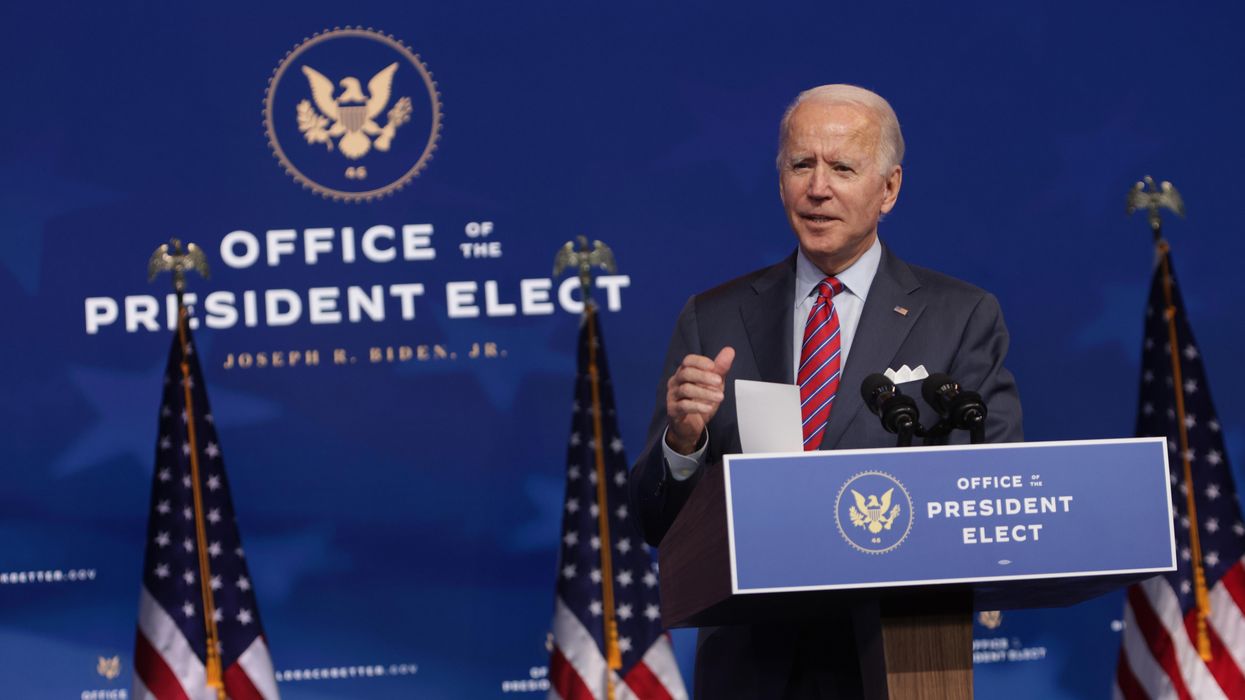As a candidate the previous two years and recently as president-elect, Joe Biden has been unfairly criticized by some in the conservative media as being on the wrong side of the capitalism vs. socialism economic debate.
Unfortunately, these pundits have misunderstood Biden's message. He does not want to adopt socialist economic policies, but rather is mindful that the private sector will thrive when its underlying political system is based on the rule of law with a functioning democracy.
One case in point. "It used to be that corporate America had a sense of responsibility beyond just CEO salaries and shareholders," Biden told the Wall Street Journal last month. "Corporate America has to change its ways. It's not going to require legislation. I'm not proposing any."
That statement is very much in line with the view of 181 chief executives of many of America's largest companies, who in 2018 overturned a 22-year policy statement that held a corporation's principal purpose was to maximize shareholder returns.
Acting on behalf of the Business Roundtable, an association of major corporations, they adopted a new "Statement of Purpose of a Corporation" declaring that companies should not only serve their shareholders but also deliver value to their customers, invest in employees, deal fairly with suppliers and support the communities in which they operate — and our country.
While this statement reflects support for a much-needed new approach to defining a corporation's purpose, it does not go far enough. I believe the president-elect's message is that there is a role — indeed a responsibility to our country — for the business community to take concrete steps to shore up a democracy that has been under continued assault for the past four years.
When too many of our political leaders fail to address the dangers to American democracy, then another group must step forward to safeguard it. The business community is a group with a major stake in having a healthy governing system. And so it should confront the reality that our public sector has become so polarized and dysfunctional that it's endangered both our democracy and the underpinning of our economy.
That's because, once confidence in our democracy is eroded, there's a very real possibility of losing our economic and commercial wellbeing.
I believe that if Biden would reach out to these business leaders he would have a welcoming and enthusiastic partner for the repairing of our democracy. Business leaders recognize the loss of trust in America by our allies. They have no doubt had to repeatedly apologize for the embarrassments of the Trump administration and understand our dysfunctional political system is not good for their business.
Politicians have their political base but so do business leaders. They are called shareholders. Shareholders recognize the returns on their investments ultimately depend on how well the nation's system of laws is functioning. If it becomes dysfunctional because of breaches of our constitutional and legal boundaries, then they will lose financially.
America's business leaders, working with the new Biden administration, could shore up the foundation of our capitalistic system, offering improvements where needed, but always mindful that both have an obligation to put our democracy back on track. Surely the corporate bosses join top government officials in recognizing that nations with dysfunctional governments and political systems are called banana republics for a reason.
They are not democracies. And they are not home to any corporate headquarters.



















